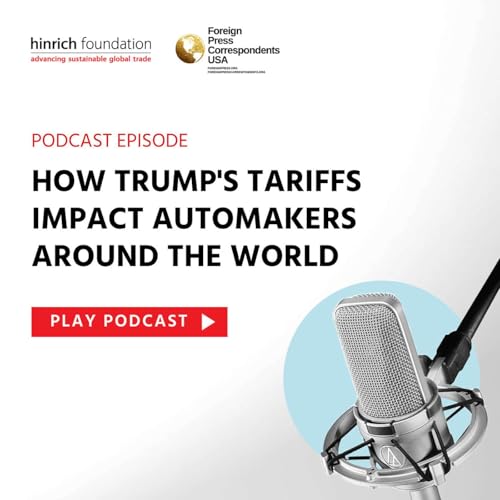In this special edition of Current Accounts, the Hinrich Foundation’s podcast on global trade, the Association of Foreign Press Correspondents-USA sits down with Naoise McDonagh, Senior Lecturer, Edith Cowan University, to unpack the crucial role of rare earth minerals in the global economy.
Rare earths are vital for advanced manufacturing, powering industries like electric vehicles, defence, and robotics. China dominates their supply, controlling 90% of processed rare earths, which gives it significant geopolitical leverage. Rare earths are classified as critical minerals due to their strategic importance and supply chain vulnerabilities. While countries like the US and Australia are seeking alternatives, China's processing monopoly and price volatility complicate efforts. Australia, with projects like Lynas, aims to reduce dependency, but global demand, especially from China, poses ongoing challenges. McDonagh concludes that the rare earth market is shifting towards strategic, state-backed production partnerships, particularly with allied nations.
Tune into this podcast as Naoise McDonagh, Senior Lecturer, Edith Cowan University, joins the Association of Foreign Press Correspondents-USA to break down the crucial role of rare earth minerals and how Australia is laying the grounds to position itself as an alternative supplier of China in rare earth elements. The podcast follows up on McDonagh’s recent paper for the Hinrich Foundation, “Australia’s rare earths lie between economic security and liberal markets.”
Download Transcript
Tune into the Hinrich Foundation’s podcast series for insights on international trade.
 34 分
34 分 50 分
50 分 47 分
47 分 48 分
48 分 29 分
29 分 45 分
45 分 55 分
55 分 25 分
25 分
